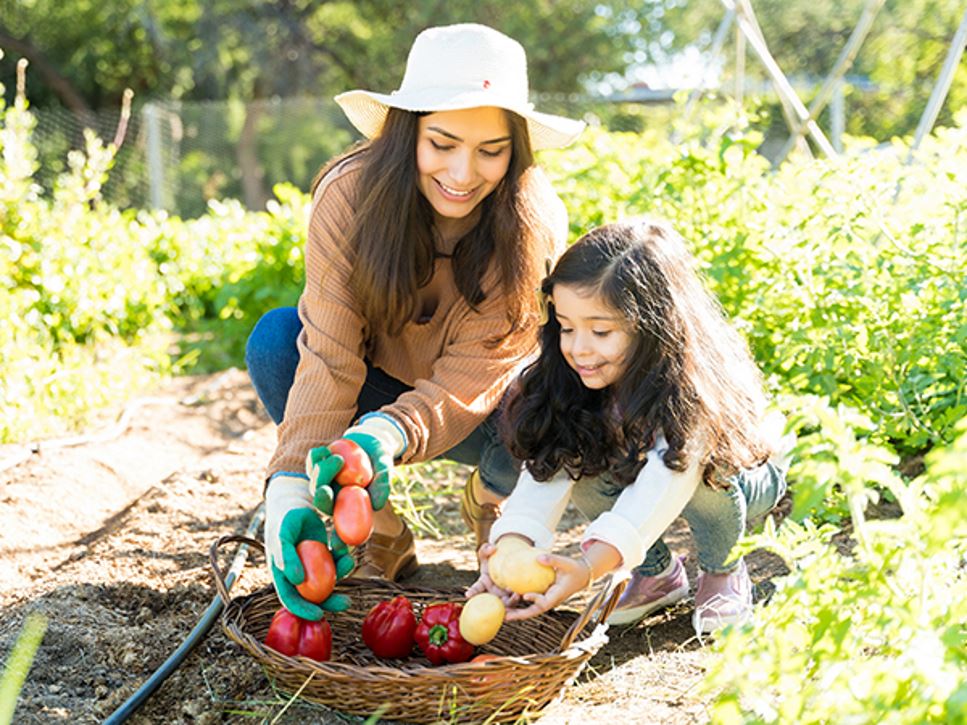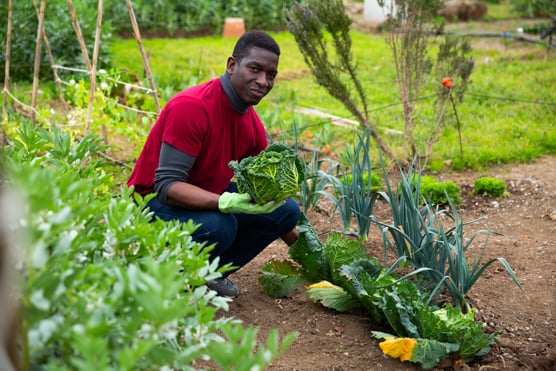How to Start an Effective Gardening Task in Your Backyard
How to Start an Effective Gardening Task in Your Backyard
Blog Article
Unlocking the Advantages of Horticulture: An In-depth Check Out the Various Kinds and Their Influence on Wellness
Discovering the multifaceted advantages of horticulture reveals a spectrum of practices that considerably boost specific health. From veggie and natural herb yards to container and increased bed arrangements, each type uses distinctive advantages that extend beyond mere farming. These tasks not just foster physical health and wellness through active interaction however additionally add to mental health by relieving stress and anxiety and motivating mindfulness. As we check out these diverse horticulture approaches, it comes to be obvious that their effect can resonate on individual, social, and ecological levels, triggering a better take a look at how these links develop a cohesive narrative of all natural health.
Sorts Of Horticulture

Flower gardening, another prominent category, highlights the visual allure of cultivated blooms. This kind can boost landscapes and promote biodiversity by bring in advantageous pollinators. In a similar way, natural herb horticulture includes expanding fragrant and culinary plants, contributing both to food preparation and natural remedies.
Container gardening offers versatility, allowing people with limited area to take part in horticulture by utilizing pots and planters. This approach is particularly popular in urban settings. Raised bed horticulture, on the various other hand, involves creating raised stories that boost soil drainage and ease of access, making it simpler for gardeners to handle their plants.
Last but not least, neighborhood horticulture promotes collaboration among people in shared spaces, promoting social interaction and collective duty. Each kind of horticulture serves distinct objectives and satisfies different choices, making horticulture a versatile task that can be customized to specific needs and settings.
Mental Health Advantages
Participating in numerous sorts of gardening not just yields concrete benefits such as fresh produce and beautiful blossoms however likewise uses substantial mental health and wellness advantages. Study shows that horticulture can be an effective device for minimizing tension, anxiousness, and clinical depression. The act of often tending to plants and cultivating a yard promotes a feeling of function and achievement, which can boost overall emotional health.
In addition, gardening motivates mindfulness, as it needs individuals to focus on today minute, whether it be planting seeds or nurturing growth. This mindfulness method can lead to lowered rumination and boosted mood security. The direct exposure to native environments during gardening has actually also been connected to boosted cognitive operating and lowered sensations of exhaustion.
Social communication plays a crucial duty in psychological wellness, and community horticulture initiatives provide possibilities for people to get in touch with others, cultivating a feeling of belonging. The shared experience of horticulture can cultivate relationships and assistance networks, even more reinforcing emotional strength.
Physical Wellness Advantages
Many people might not recognize that gardening likewise provides considerable physical wellness why not look here advantages. Engaging in horticulture tasks requires an array of physical movements, consisting of bending, training, digging, and growing, which collectively contribute to better stamina, adaptability, and endurance. These activities can enhance cardio health by advertising a raised heart rate, consequently reducing the danger of heart condition.
Furthermore, horticulture can function as a moderate-intensity workout, helping individuals achieve advised physical task degrees. Research studies show that normal participation in horticulture can burn significant calories-- approximately 200-400 calories per hour, depending upon the intensity of the jobs executed. Such calorie expenditure is helpful for weight monitoring and general metabolic health and wellness.
Additionally, direct exposure to sunshine throughout gardening can facilitate the synthesis of vitamin D, which plays a necessary role in preserving bone wellness and sustaining immune feature. Additionally, the act of horticulture often includes collaborating with dirt, which has been connected to prospective psychological and physical health and wellness benefits due to the presence of valuable microbes. Gardening.
Social Connections Via Horticulture
The communal facets of gardening foster meaningful social links among individuals. Community gardens, particularly, act as vivid hubs where people from diverse backgrounds collaborated, cultivating not only plants yet likewise relationships. These shared spaces motivate cooperation, allowing people to trade expertise, skills, and sources, therefore improving their gardening experience and cultivating a feeling of belonging.
Involvement in horticulture activities frequently leads to the formation of friendships and support networks. like this Individuals regularly join for common goals, such as growing periods, harvest events, or academic workshops, which reinforce interpersonal connections and develop a feeling of community. Such interactions can ease feelings of isolation and enhance mental wellness, as individuals discover companionship and camaraderie in shared ventures.

Environmental Effect of Horticulture
Gardening dramatically adds to environmental sustainability in numerous methods. Among the most notable benefits is the enhancement of biodiversity. Home gardens give crucial habitats for numerous varieties, consisting of pollinators such as bees and butterflies, which are necessary for community health and wellness. By growing varied plant varieties, garden enthusiasts can develop a well balanced setting that sustains both vegetation and fauna.

Additionally, gardens play an essential function in water preservation. Well-planned landscapes, consisting of indigenous plants and xeriscaping, minimize water use and protect against overflow, consequently shielding local waterways from pollution.
Conclusion

The diverse types of gardening-- consisting of veggie, flower, natural herb, container, and increased bed-- add to mental and physical health and wellness, foster social connections, and promote environmental sustainability. By involving in horticulture methods, people can experience enhanced quality of life while also sustaining area bonds and ecological wellness.
Report this page